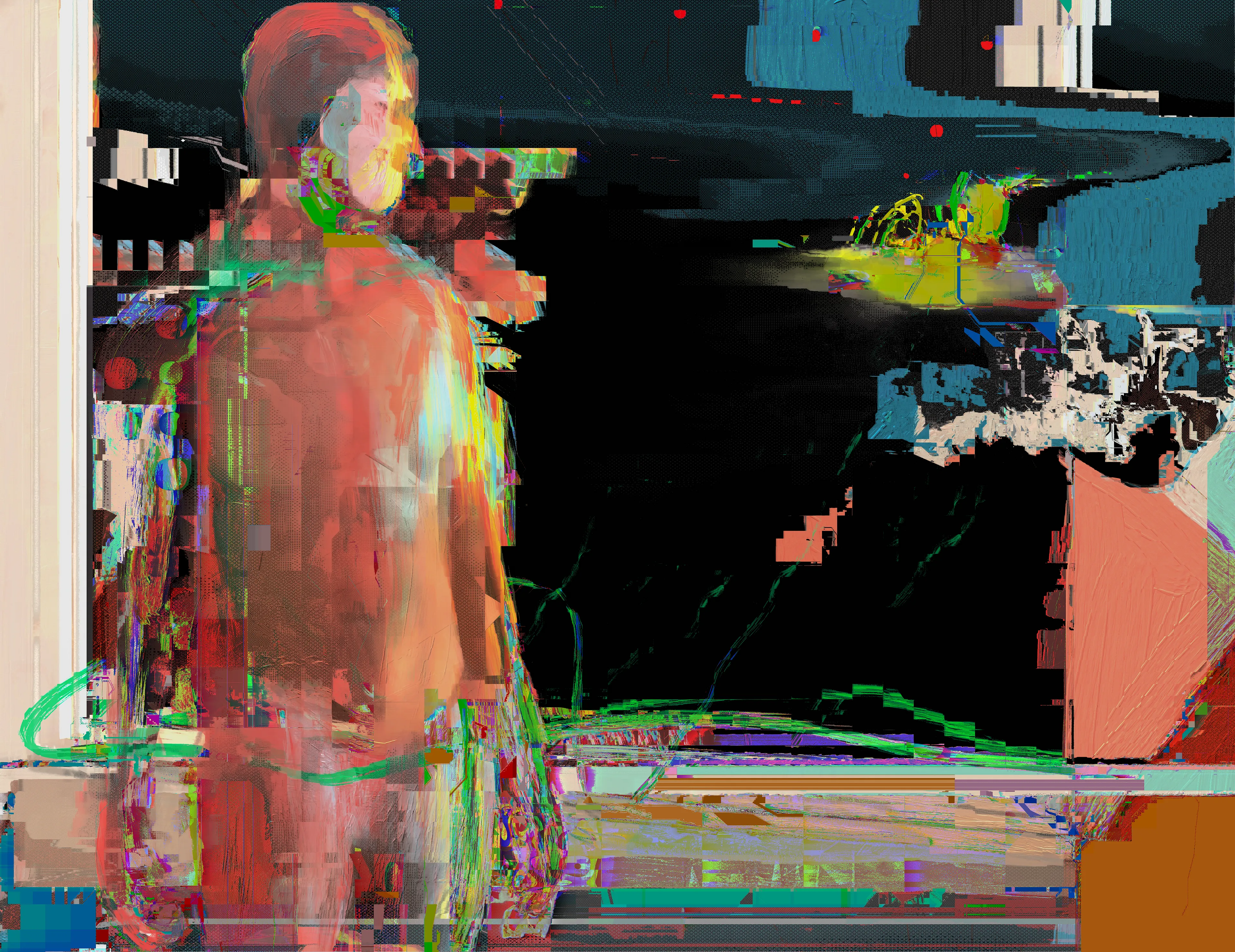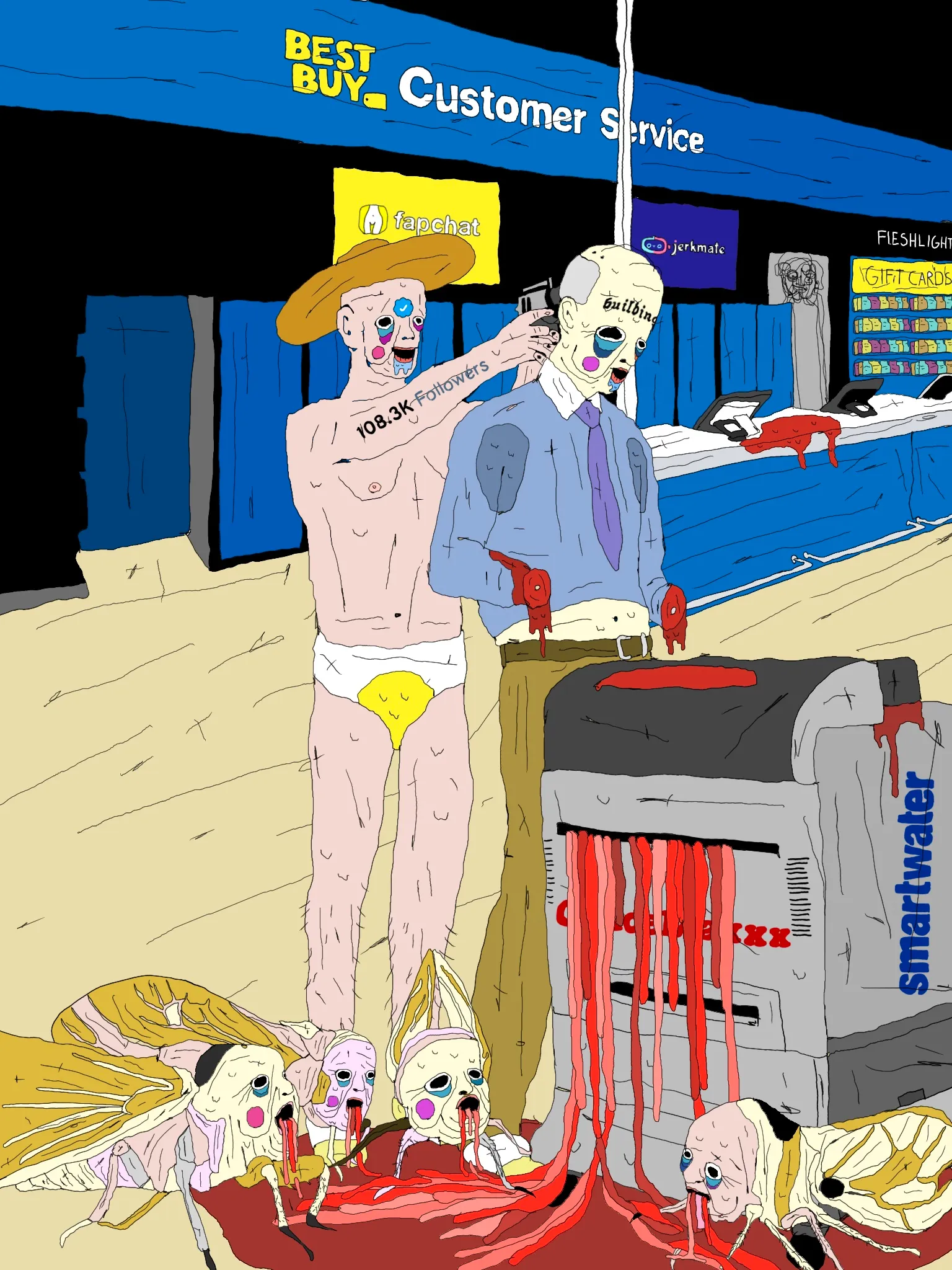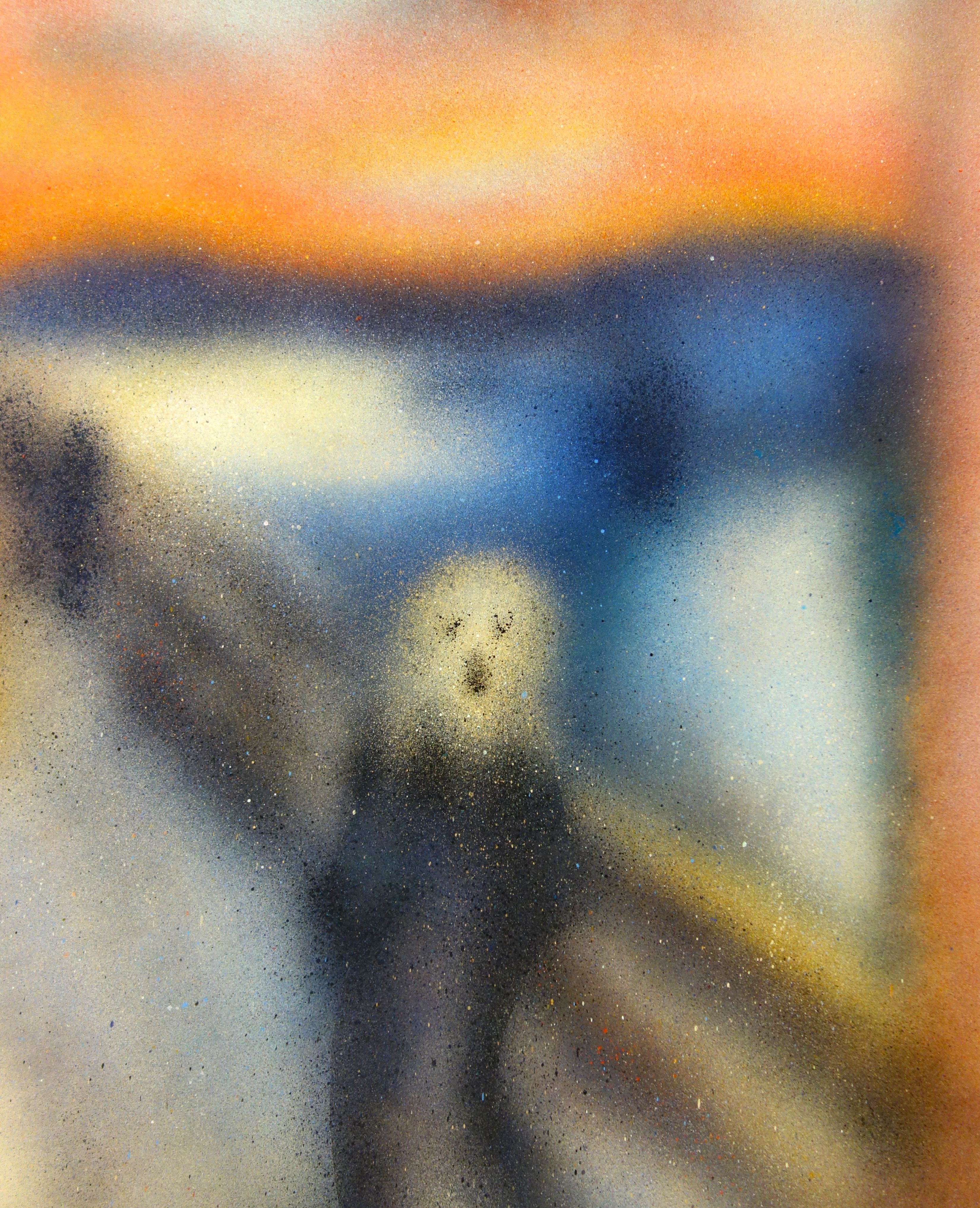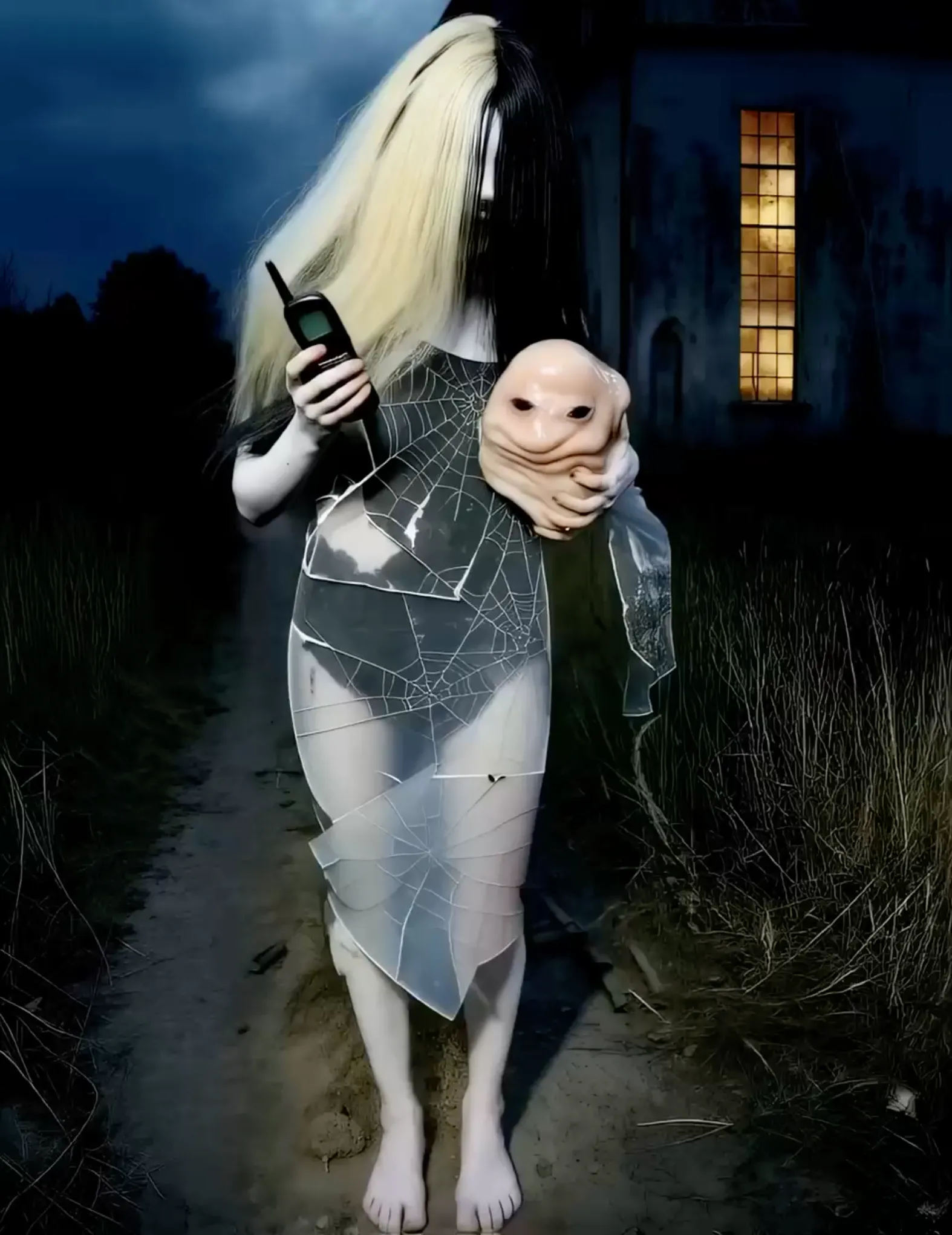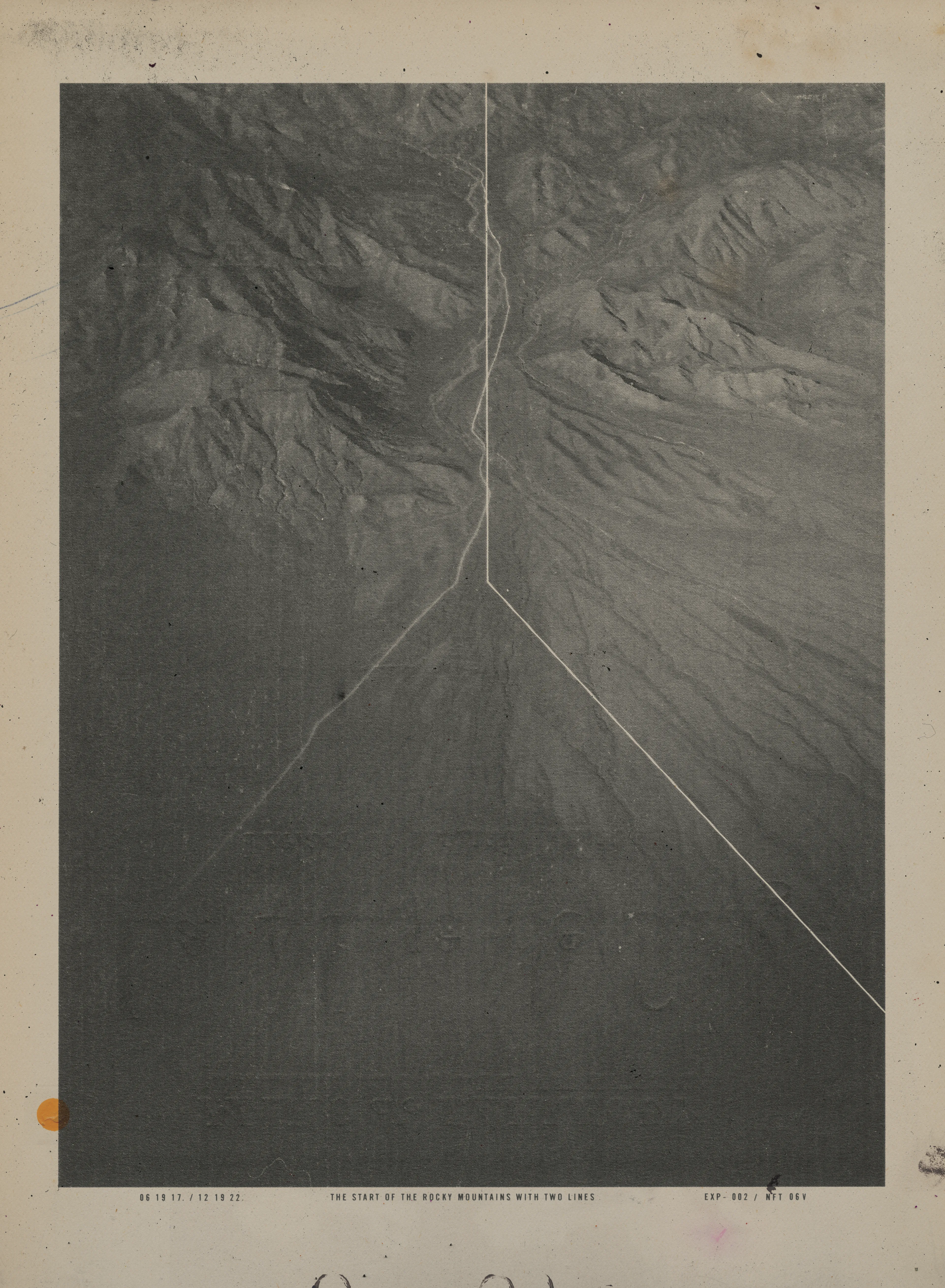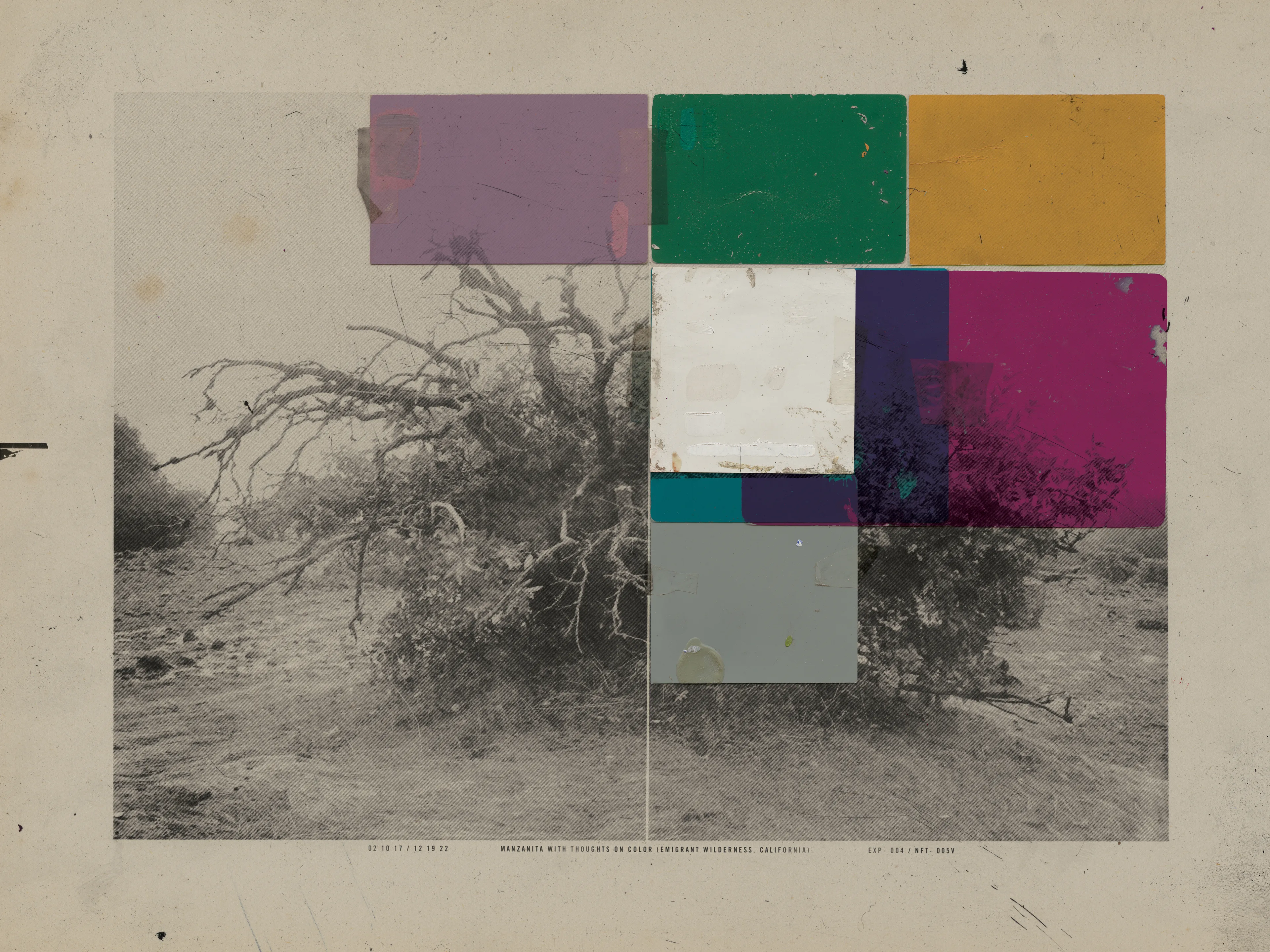Subscribe to get the latest on artists, exhibitions and more.
Thoughts on the objectness: Gary Edward Blum in conversation with Fakewhale
Gary Edward Blum in conversation with Fakewhale and Mimi Nguyen.
Mimi Nguyen: You've collaborated with Gary on the Fakewhale | CROSS series in the past. What was about his works that first captivated your attention?
Fakewhale: Gary's works have an 'immediate artistic reference to some of the authors of conceptual photography of the 1960s. The pictorial interventions make the images very different from those of other artists working in the NFT space, resulting in a truly personal result. We have always been impressed by these references, which, together with the quality of the work, make Gary a perfect artist for the Fakewhale program.

Fakewhale: What are your artistic references in painting and photography?
Gary Edward Blum: At this point in my career, I have a pretty established personal vocabulary. But I find inspiration in nature, quiet, architecture, interior design and duality. But to name a few artists off the top of my head that had/have influenced my work: de Kooning, Agnes Martin, Christopher Wool, Wade Guyton, Richard Serra, Carleton E. Watkins, Rudolf Stingel, David Carson, Swiss Design, David Benjamin Sherry, Richard Avedon, Raymond Meeks, Alison Rossiter, Sally Mann, Katy Grannan, etc.
Fakewhale: What relationship do you have with photography and how can your practice be considered a hybrid with the use of painting interventions on it?
Gary Edward Blum: The relationship is a bit of a struggle…which is a good thing. I had gotten to a point with my paintings that I felt like I wasn’t being challenged, that I was just repeating myself. In 2016, while I was a resident at Headlands Center for the Arts, I was preparing for a solo show. At the same time, I was experimenting with small postcard-sized photographs using just my iPhone. (Those images would later become the start of the Target House Series) I found myself becoming more and more drawn to the photography, it felt fresh and undiscovered. And while I could predict what my paintings would look like, with the photos, it was like starting a new relationship. I felt free to explore, an excitement I hadn’t felt in years.
I would consider my practice a hybrid of the two because that’s essentially what it is. I do not consider myself a “Photographer,” rather an artist using various media to create a desired outcome. In this case, I still love the feeling of paint and didn’t want to become trapped in search of the perfect image. That’s not what it was about. It was about freedom and not wanting to be trapped by technique or the perfect camera. I was also drawn toward the sculptural or “objectness” of the final piece. So what began to happen is that I would purposefully degrade my images by using basic printers, scratching the negatives, and leaving them around the studio to collect their own history. After printing I would apply washes, elements of paint, or other graphic interventions to place the work somewhere between the two and create something that expresses both ideas, yet is its own unique vision.
Mimi Nguyen: Was it the case of The Start Of The Rocky Mountains With Two Lines?
Gary Edward Blum: 'The Start Of The Rocky Mountains With Two Lines' was taken while on a flight to Japan. As is common when seeing our planet from above, I was struck by the natural compositions of the earth. In this instance, I was particularly drawn to the shapes of the mountains in contrast to the man-made line (road) running through them. I continued the idea of balance once I was back in the studio, by adding a second man-made line mirroring the other. One that adds balance and a sense of wonder… although I’d prefer that the image be just a starting point for the viewer to find their own meaning.
Fakewhale: The subjects of your works often depict outdoor locations, what connection do you have with these and how are they related to each other?
Gary Edward Blum: It’s not the locations as much as the subjects that matter most to me and those I generally connect with outside. I grew up on a dirt road on the coast near San Francisco. Being in the outdoors is/was part of our family and consequently became a source of reverence for me. The closest place that I feel a sense of spirituality is being in nature. Its vastness and solitude speak to me. If you look at my body of painted works, you will find that they are all centered, an object painted within a field of off-white. Generally speaking, it’s basically no different in my photographic work. Except instead of a painted object, the subject becomes a house, a bush, a rock, or a shape. And instead of white, it is replaced with the landscape. The subjects relate to each other in a constant formal sense of composition and of balance. While I view the objects as a kind of self-portrait that changes thru time, similar to our own bodies and minds.
Mimi Nguyen: Can you tell us more about Manzanita With Thoughts On Color?
Gary Edward Blum: 'Manzanita With Thoughts On Color' is a meditation on formal composition, balance, and duality. I took this photograph in the Emigrant Wilderness near the Sierra Foothills of California. Over the past 10 years, fires have increasingly devastated much of California’s forests. The B/W image and treatment are meant to trigger a kind of nostalgia or loss. While the colors, for me, look to a future of growth and new beginnings. Ultimately, I hesitate to put words or give meaning to the piece, I prefer the viewer bring their own interpretations.
See the works of Gary Edward Blum on Verse's exhibition "Magical Realism: Part II" on Tuesday 20 December at 6:00PM BST | 1:00PM ET
Fakewhale
Fakewhale is a leading Web3 project with a long-term vision to empower art and artists through digital culture by combining blockchain technology with high-end curation. This movement's founders include renowned artists within the space, Skygolpe, and Jesse Draxler, who not only laid the foundation but continue to build alongside the community.
Mimi Nguyen
Mimi is a Creative Director at verse. She is a assistant professor at Central Saint Martins, University of Arts London where she leads the CSM NFT Lab. Her background is New Media Art, having previously studied at the Berlin University of the Arts (UdK) and Academy of Fine Arts in Warsaw. She now also teaches at Imperial College London, Faculty of Engineering, where she leads Mana Lab - a “Future...
Gary Edward Blum
Gary Edward Blum was born in Montara, California, a coastal town 30 minutes south of San Francisco. He has spent the better part of two decades exploring duality through his paintings and photography. The grandson of both Italian and Swiss immigrants, Blum was surrounded by stories of exploration and independence as a child. In 2000, he traveled to India, where he was exposed to Eastern philosophy...
